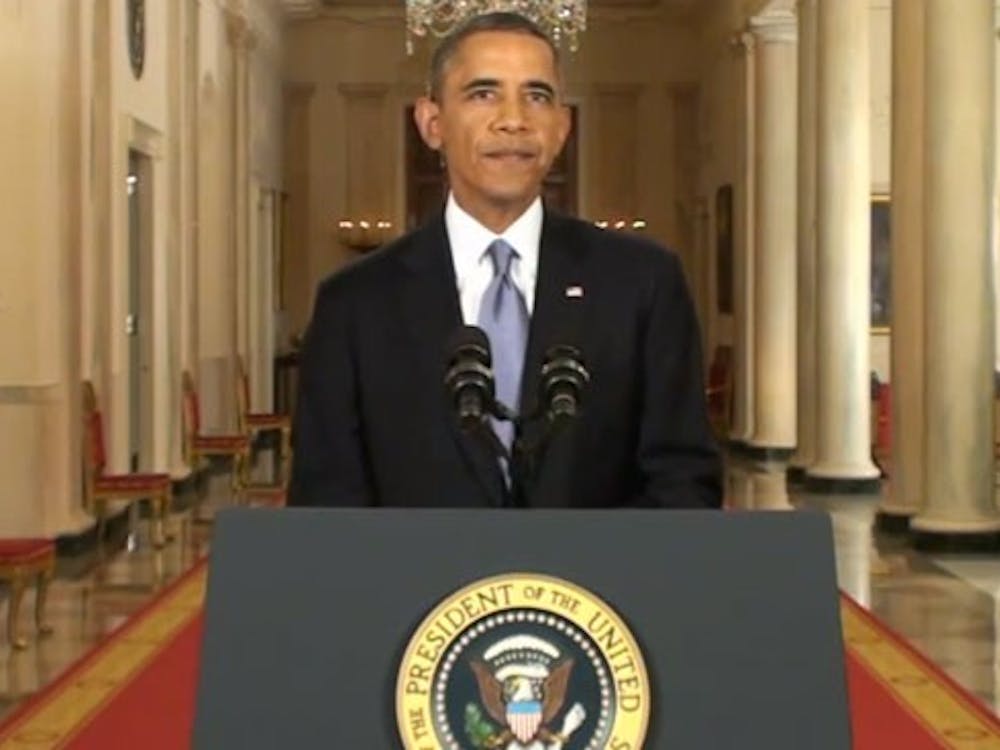On election night, Nov. 4, we will have the answers to several key questions that have emerged during the course of this campaign. Here are a few things to look for.
Can McCain close a 6 to 8 percent gap in national tracking polls within a week of election day? If so, how? In 1980, Reagan closed in on Carter and in 2000, Gore closed in on Bush after being behind before the last week of the campaign. If McCain is going to win, his campaign would need to take a similar turn.
Can Obama be the first Democrat since Jimmy Carter (1980) to win a majority of the popular vote? And, if so, by how much? If not, how could he fail to lose given all the advantages he has going into Election Day?
How many "red" states can Obama turn "blue;" can McCain turn any "blue" states "red?" In order for Obama to win the election, he will need to carry enough states to gain at least 18 more Electoral College votes than John Kerry won in 2004. Whereas McCain is only competing in a few states that voted for Kerry (Pennsylvania, Minnesota, and Wisconsin), Obama is competing in numerous states that voted for Bush: Virginia, Florida, North Carolina, Indiana, Ohio, Missouri, North Dakota, Montana, New Mexico, Colorado, and Nevada (not to mention Georgia and West Virginia).
Will Virginia be one of those red states to vote for Obama? All eyes will be on Virginia in the early moments of election night. Since polls in Virginia close at 7 p.m., it will be the first battleground state that Bush won in 2004 to report results. Thus, Virginia will be a bellwether state on election night. If McCain holds Virginia, he has a chance; if Obama wins the state, he is almost certain to win the election.
What role will race play in voting behavior? Although many skeptics believe polling results are unreliable indicators of voting preferences, the exit poll results from 2004 provide important benchmarks. Note that partisan voting preferences were divided along racial lines in the last election. In 2004, 77 percent of voters nationwide were white, and 58 percent voted for Bush, the Republican, whereas among the 11 percent of African Americans who voted, 88 percent voted for Kerry, the Democrat.
What effect will young voters have on the outcome? In 2004, 18 to 29 year olds made up 17 percent of the vote and 54 percent voted for Kerry. Obama will do well if the percentage of 18 to 29 year olds increases and/or a larger proportion of them vote for Obama.
Will the economy be the deciding issue during the campaign? In 2004, the economy, terrorism, moral values and Iraq were all considered important issues to voters. Recent polls have shown the economy is the dominant issue and people believe Obama will do a better job than McCain in handling the economy. If this trend holds up, it will go a long way toward explaining the results; if not, a change in the issue mix may create an opportunity for McCain.
Will we see record voting turnout? In 2004, a record number of people, 122 million, voted; some prognosticators say the number could reach 140 million this year.
By the time those questions are answered, most Americans, thankful that the long campaign is over, will pay much less attention to politics.
But, of course, that is when a whole host of new and interesting questions will arise.
Enjoy what you're reading?
Signup for our newsletter
Support independent student media
You can make a tax-deductible donation by clicking the button below, which takes you to our secure PayPal account. The page is set up to receive contributions in whatever amount you designate. We look forward to using the money we raise to further our mission of providing honest and accurate information to students, faculty, staff, alumni and others in the general public.
Donate Now


